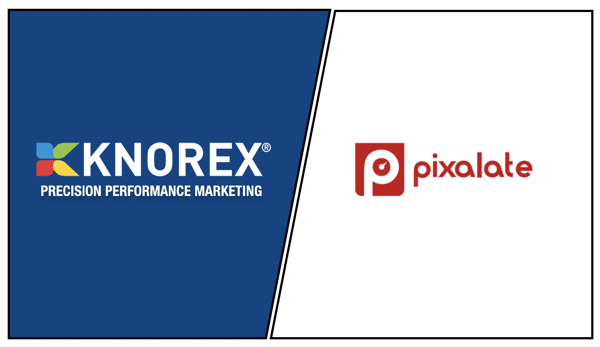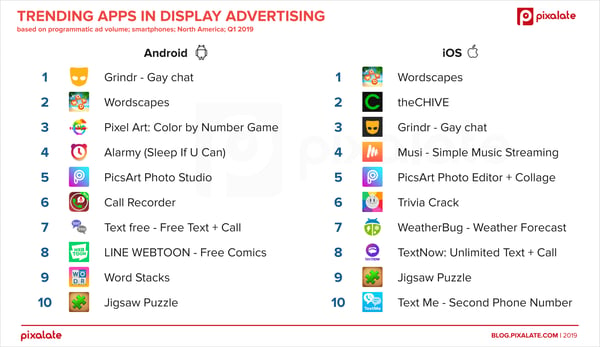
This week's review of ad fraud and quality in the digital advertising space.

KNOREX this week announced a partnership with Pixalate and will use Pixalate's proprietary pre-bid blocklists to provide platform-wide protection against ad fraud in Connected TV (CTV) and Over-the-Top (OTT) across all devices.
“Partnering with the best-in-class partners to give our customers the confidence and protection is paramount," stated Abhishek Kumar, VP Engineering of Knorex. "We are pleased to deploy Pixalate’s solutions across different channels, including OTT/CTV, for our customers.”
Read the full press release.

Where are North American (NA) mobile advertisers most active? Pixalate monitors billions of mobile in-app programmatic advertising transactions to identify which apps are trending at any given moment, and this post brings you the top 30 trending apps in North America based on programmatic ad volume.

According to Digiday, some DSPs are beginning to enforce app-ads.txt. "By beginning to enforce app-ads.txt, DSPs are effectively sending a warning shot to app developers that have yet to adopt the anti-fraud initiative to do so before enforcement expands and apps risk losing revenue," Digiday wrote.

"Fewer internet users than expected are blocking ads across the US and Western Europe," reported eMarketer. "For the second year in a row, we’ve downgraded our estimates of the ad blocking population in France, Germany, the UK and US, as well as our forecast for future growth."

"New research into the impact of Triada, a sophisticated remote access Trojan that was recently found pre-installed on numerous Android devices, has shown that more than 15% of telecom companies globally have infected devices running on their network," reported Dark Reading.
*By entering your email address and clicking Subscribe, you are agreeing to our Terms of Use and Privacy Policy.
These Stories on Weekly Recaps
*By entering your email address and clicking Subscribe, you are agreeing to our Terms of Use and Privacy Policy.

Disclaimer: The content of this page reflects Pixalate’s opinions with respect to the factors that Pixalate believes can be useful to the digital media industry. Any proprietary data shared is grounded in Pixalate’s proprietary technology and analytics, which Pixalate is continuously evaluating and updating. Any references to outside sources should not be construed as endorsements. Pixalate’s opinions are just that - opinion, not facts or guarantees.
Per the MRC, “'Fraud' is not intended to represent fraud as defined in various laws, statutes and ordinances or as conventionally used in U.S. Court or other legal proceedings, but rather a custom definition strictly for advertising measurement purposes. Also per the MRC, “‘Invalid Traffic’ is defined generally as traffic that does not meet certain ad serving quality or completeness criteria, or otherwise does not represent legitimate ad traffic that should be included in measurement counts. Among the reasons why ad traffic may be deemed invalid is it is a result of non-human traffic (spiders, bots, etc.), or activity designed to produce fraudulent traffic.”

